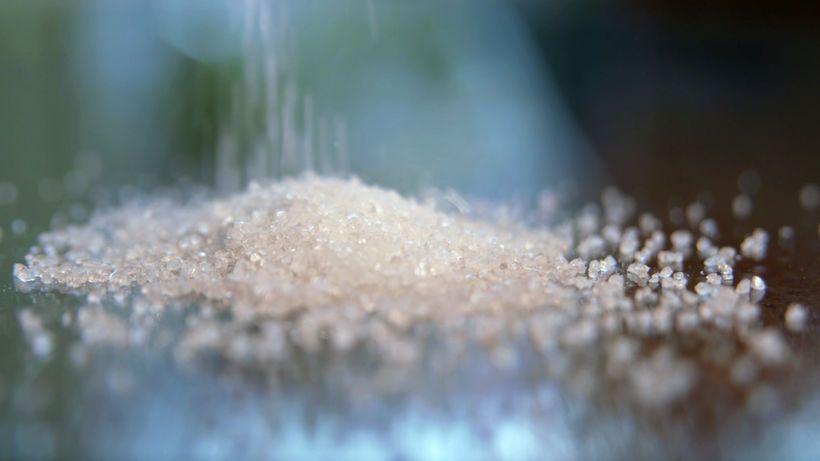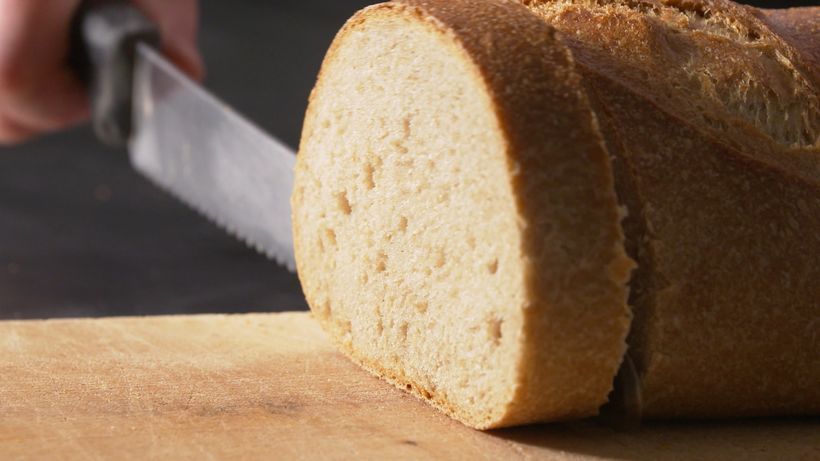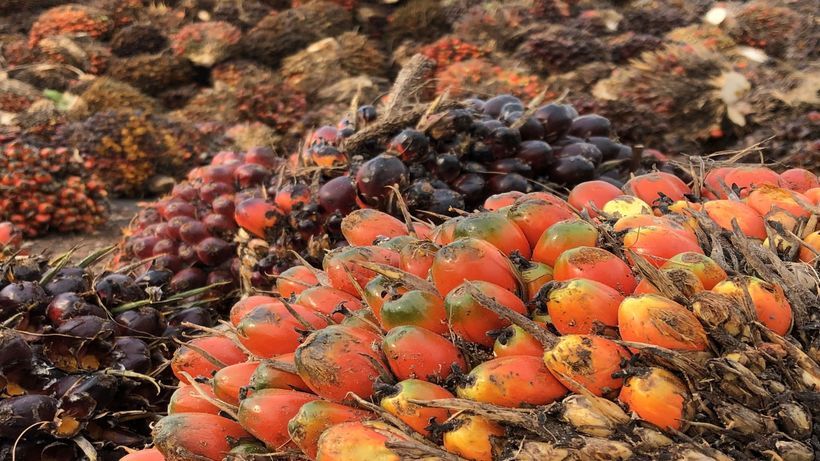Nutrition - Joys and Sorrows of Eating
In recent years, the detailed study of nutrition has developed into a trend. Digestive wellness is propelled by new ingredients and backed by emerging science.
Technologies ranging from wearable fitness trackers to DNA and microbiome testing will drive demand for nutrition tailored for a specific individual. Food is essential for surviving, but what if food makes us sick? In this series we take a close look at our food and find out that some edibles are better than their image.
Episodes
-
Bread: A Loaf Fights for its Image
Bread as an aliment is coming under increasing pressure. Whether irritable bowel syndrome, gluten sensitivity or as a dietary measure, there are more and more reasons to remove bread from the diet. But what's the reason behind this trend? Does bread or wheat actually damage our intestines? Or is in many cases simply the industrial production of bread to blame for its ever worsening image? Tradition and experience from around 6,000 years of baking are now being rediscovered, by people who bake their own bread and by big bakery chains who want to improve their image.
-
Algae, Worms, Nuts - What Do We Eat in 2050?
In 2050 there will probably be about 10 billion people on earth. But already one billion people are suffering from hunger. The overexploitation of agriculture has leached out the soil. Our meat consumption has quadrupled in the last 50 years. But it is cattle breeding that poses a threat to food security. Because in order to get a kilo of meat, the animal needs an X-fold of feed, which in turn is missing in the human food chain. On the other hand, about a third of our food ends up in the garbage. How can we prevent future food shortages? Will we only get enough food in the future thanks to insects, algae and astronaut food?
-
Fat: A Struggle for Reputation
Fat makes you fat and sick! A truism that was valid for 50 years is outdated today. It is now known that the body needs fat. It is the number one taste carrier and an important source of energy. Butter or lard are even healthier than margarine. Animal fats had fallen into disrepute because of their cholesterol. But are there good fats and bad fats? For example, the "bad" palm oil that is found in many processed foods is often pilloried. For the huge plantations, primeval forests are burned down and orangutans are expelled. But does a boycott make sense or would the replacement by supposedly sustainable alternatives make everything even worse? Are linseed oil and fish oil really as healthy as is always claimed?
-
No Sugar, Please
We all eat too much sugar. But because we love sweets and at the same time know that sugar is unhealthy, we are increasingly switching to sugar substitutes. Sweeteners promise pleasure without regret and the industry is booming accordingly. Stevia, xylitol, erythritol & co, new substances come onto the market every year and the range of products is becoming increasingly confusing for consumers. After all, not everything that is advertised as a healthy alternative is really harmless. Which sugar substitutes can be used with a clear conscience? Which should we better keep our hands off?
-
Fasting as a New Remedy
Fasting is a powerful weapon against age and disease. What primitive people and religions have been doing for thousands of years is now also being scientifically tested. The findings are astounding: our body has the ability to repair itself and rejuvenate itself. But only if it gets nothing to eat. First human studies give information about the abilities of our self-healing program, which could go up to the fight against cancer. But which kind of fasting is the right one? And will the fasting effect ever even be available in pill form?
-
Vitamins - A Fairy Tale of Deficiency
Hardly any other nutrition causes as many diverse opinions than vitamins. Vitamin preparations have been an international billion-dollar business for years, because the myth of lack has been successfully told. But which vitamins do we really need? Isn't everything necessary in a healthy diet? In the meantime, more and more food manufacturers are turning to functional food, i.e. food enriched with vitamins. But scientists warn that this can lead to an overdose or even an increase in mortality.
-
Lactose, Gluten & Co. - Enemies in Our food?
Food intolerances, hypersensitivities. Never before has man dealt so intensively with what he eats. The leitmotif of enjoyment has long since been replaced by the fear of eating the wrong thing. For decades, milk, cereals and fruit were considered healthy, but today they are on the watch list. Are lactose, gluten and the like even harmful to our bodies? Although there is no medical evidence for most of those affected, there are clear profiteers of the intolerance trend: the food industry, for example, is rubbing its hands in the face of the booming "free from" sector. More and more people are turning to gluten-free and lactose-free foods. But is that really healthier?
-
Organic Cattle
Antibiotic resistance is considered a global threat. In particular, the use of antibiotics in large-scale farming promotes resistant germs. But there is another way: Uruguay banned the use of antibiotics for breeding livestock 40 years ago. Other additives such as hormones and growth accelerators are also banned. Why does natural livestock farming work in Uruguay, of all places, and is it actually controlled?
-
Personalized Dieting
Never before has society thought so much about proper nutrition. The trends are varied but a new trend is coming from Israel, which questions all previous wisdom regarding healthy food: personalized nutrition. What lies behind the new trend of personalized nutrition? Is it really promising and if so, what would that ultimately mean for our eating and shopping habits?
-
Asia’s Obesity
In most Asian societies food plays a central role. Since the turn of the millennium, most Asian countries have been struggling with an almost epidemic spread of obesity and diabetes. It's a result of Asia's rapid economic growth in recent decades. Does prosperity make you fat?
-
Superfoods
Many miraculous effects are attributed to nutrient-rich Chia, Goji, Acai, and Moringa produce. These seeds, berries and leaves come from diverse lands all over the world. But what is really "super" about superfoods? Do the bold claims about health benefits hold any validity, or are they based on traditional myths?
-
Seduction of Food
Crunchy chips, creamy puddings or vegan burgers that bleed have one thing in common: they are the outcome of an industry that spares no effort to design the "perfect" product. It is often advertised as natural, fresh and healthy. But what is really in them? A film about the power of recipes over our senses, the big crunch and meat consumption.
-
Obsessed with Food
Recently, extreme nutritional trends like Fruitarianism and the Carnivore Diet are increasing in popularity. While some people only eat fruit, others only eat animal products such as meat, fish, and eggs. The Carnivore Diet comes from the USA and is also gaining a strong following in Europe. How healthy are these extreme diets in reality?
-
Salt - The White Gold
People's salt consumption is too high. According to the WHO, consumption should be reduced by half, but that's not so easy. Most of the salt we consume comes from processed foods. It is found in sausages and cheese, bread, soups and sauces. It is used not only for flavor, but also for preservation. However, new technologies show promising approaches.
Facts
-
Year2016 - 2019
-
Length14 × 30' (GER, 2 Eps ENG subs)
-
ResolutionHD
-
Produced by


